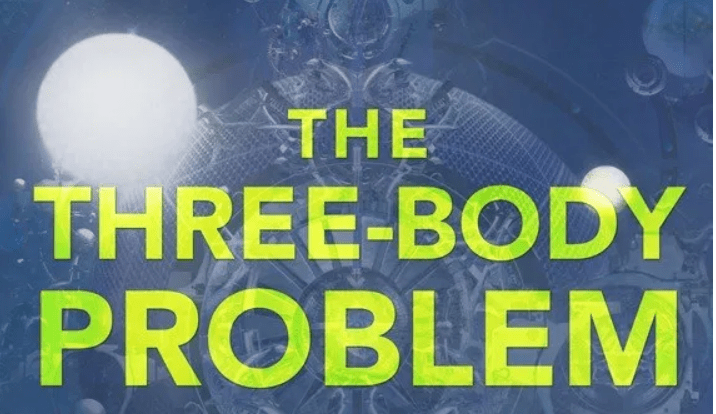I’ve been reading this awesome science fiction series the last month. It’s a triology called the Three Body Problem by Liu Cixin. If you haven’t heard of it yet, you have now, and you’ll be hearing more. Apparently, its slated for a big HBO series. And with good reason. Its solid, fascinating and a great story. And personally… inspiring!
The author Liu Cixin is fabulously scientifically literate. Like any good science fi, his work involves extrapolations of current science. However, his grasp of current science is so commanding that the extrapolations that he paints are vividly educating, compelling and engaging. But this novel, which begins in rural China, has been more than just a good read, educating and thought provoking. Personally, living rural Indonesian village, I’ve also found it to be deeply inspiring.
Without spoiling the story, the novel paints a picture of an advanced alien civilization in a three sun solar system that is inherently unstable and unpredictable (“the three body problem”). They discover the Earth– a stable solar system– and set out to invade. However, the trip from their star to ours will take 400 years, and they are concerned that human technological progress is so fast that humanity will catch up to them. So in advance, they send some autonomous quantum particles at the speed of light to Earth in to disrupt the theoretical physics work being done by scientists on Earth. The particles can’t do anything physical, but they can disrupt all the particle acceleration experiments being done around the world.
The idea is simple. By preventing humans making progress to understand the basics of matter and the universe, they will not progress technologically. And it make sense! The depth of our theoretical understanding of the world– of atoms, electrons and their forces– are were we able to progress to electricity, nuclear power, space exploration. Without theoretical progress we’ll never get to the big applications– fusion power, non-combustion space propulsion, etc. The entire novel, and Liu’s next two books in the series, are based on the importance of theory. In the end, its not the scientists or soldiers or politicians that make the crucial breakthroughs, but those doing the theory and philosophy.
Go theory!
Over Covid, I’ve been going deep into reflection and the lonely and thankless task of theoretical development. I say “thankless” because unlike the practical ecological work that I often do, working with communities, groups and governments to make and build actual physical stuff, when your doing theory, you don’t see any physical results.
Deep down you know its important, but the task of relentlessly refining words and sentences to hone the requisite succinct precision of axioms and tenets is well… not the funnest thing in the world! I am working on several new concepts that inter-connect like a matrix. I must have written 5,000 words, to get 500. Its a process of constant conceptual refinement. You work on one concept, only to understand the other better. Then you have to go back and refine the first. Its like simplifying a complex quadratic equation, cancelling out variables, until you get its most simplified version. In fact, that’s actual what it is– but with words!
The three body problem has encouraged my intuition that the development of ecological theory is not just important, its crucial.
I am seeing that we’re a lot the Earth in the story that can’t move forward with technological progress and solutions, because its theoretical understanding has been blocked. However, for su instead of alien’s blocking us– its the economic systems that we’ve created that have taken a life of their own.
Recent stories in the media tell about “how big oil misled the public into believing plastic would be recycled” (that’s the actual title of the paper) or how oil companies have known since the 1980’s about the existential risks of burning fuels but buried it. I wrote a story myself on the “evil illusion of recycling“. In a moment where everyone is talking about conspiracy theories, the way that petro-captial system has systematically conspired to undermine our collective awareness of ecological reality is biggest and most dramatic conspiracy of them all!
Without accurate awareness, its no wonder that all our technological attempts to be greener, to reduce Co2 emissions, to reduce plastic pollution, have failed.
Its not that we don’t care about our planet. Its not that we’re some sort of virus destroying its own habitat. On the contrary. My observation is that we’re all tremendously concerned and motivated. Rutger Bergman does a great job of making clear that humanity is in fact potently motivated towards helping, solving problems and assisting others when properly informed (another great book: Humankind). We’ve simply not had the real world facts to place ourselves properly in a redemptive narrative. We’ve been stuck in an old and flawed ecological paradigm, and we just haven’t had the accurate feedback to build a theoretical ecological foundation for moving forward with real solutions.
My last decade working with “the plastic problem” (heh… title of another novel?) has given me lots of real world experience about what is actually happening ecologically. From this I’ve been working on a theoretical framework for petro-capital transition. My passion and focus had been waning the last few weeks. But now, reading this great novel… I am inspired and back at it.
Thanks Liu Cixin! 🙂 And thanks Irfan for the book recommendation!


